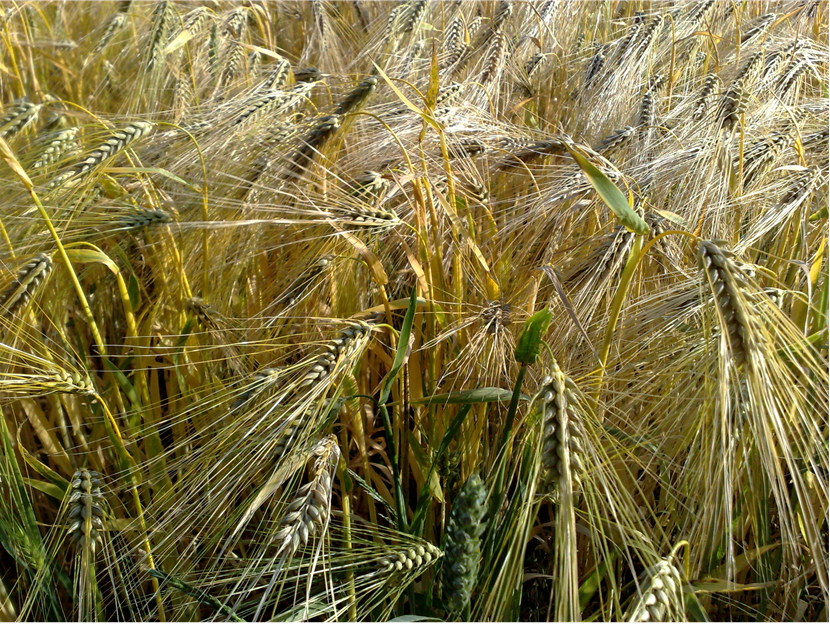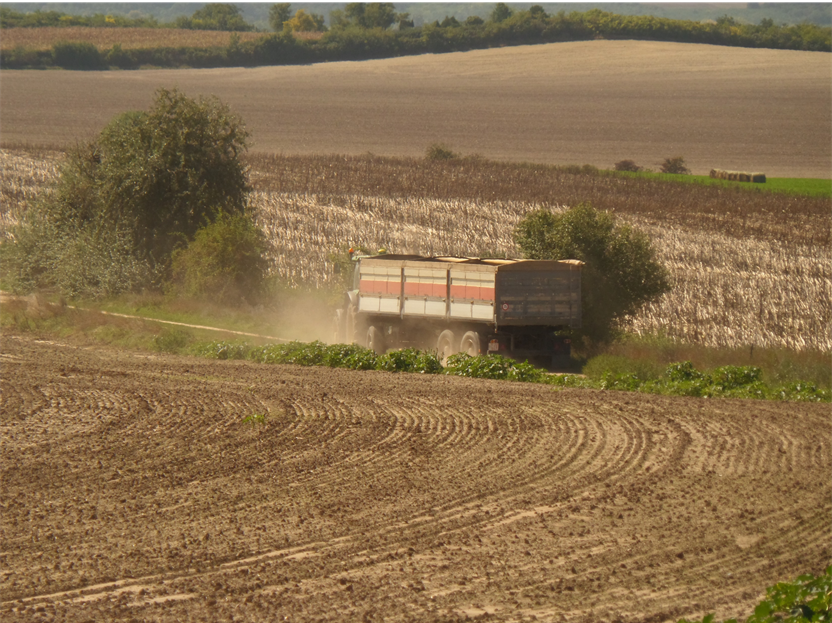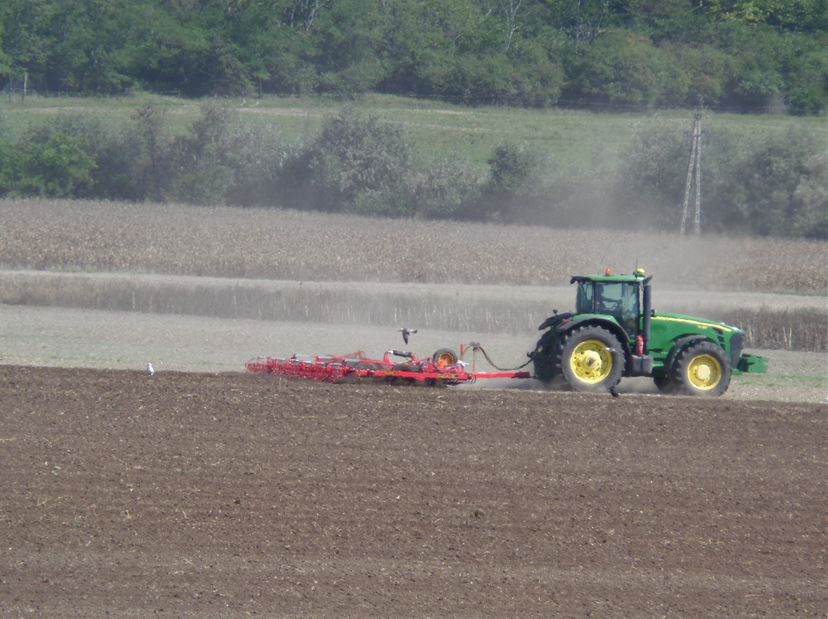Agro-ecological practices
How can you implement agroecological farming systems practices on your farm?
Several case studies show how you can implement on your farm, for example, dairy farms in the Czech Republic and Latvia, peach growers in Greece, soil conservation in Hungary, vineyards in Italy, ruminant farms in Sweden and others.
How can you implement agroecological farming systems practices into the food chain?
It’s important that farmers and other links in the Agri-value food chain work together to implement agro-ecological practices. Based on our research findings, strengthening farmers' cooperation and networks is a key strategy that would help farmers to reduce their socio-economic fragility, without worsening their good environmental performance. Within this strategy, 3 initiatives stand out:
- learning communities (e.g. AKIS, Agricultural Knowledge and Information System),
- peer-to-peer mentoring, and
- support measures that promote farmers’ participation in collective actions such as the CUMAs (farm machinery cooperatives) in France.
Thanks to these initiatives small sized agro-ecological farmers could participate in collective actions, and their connections with other farmers would be strengthened. The empowerment of farmers would benefit the whole agro-ecological system, since the transition should follow a bottom-up approach, that is, being based on the experience and necessities of farmers. Once agro-ecological farmers' associations and cooperatives are strengthened, it is when they must create networks and coordination structures with other actors of the value chain in order to develop the agro-ecological market.
What is keeping you from implementing agroecological farming systems?
Reviewing the case studies, you will see that farmers and landowners often find barriers that deter them from agroecological farming systems, one of the most common being concern about cost. By reading the case studies, you can see how farmers and landowners in in cooperation with other members of the value chain and rural actors have proposed solutions that enable successful transition.
UNISECO has also produced a series of recommendations for practitioners to identify issues and promote good practices. Read all our issue briefs here:
Austria
- UNISECO H2020 issue brief: Mitigation of climate change by humus formation and regenerative arable farming in Eastern Austria
- UNISECO H2020 issue brief: Eindämmung des Klimawandels durch Humusaufbau und regenerativen Ackerbau in Ostösterreich
Czech Republic
- UNISECO H2020 issue brief: Enhancing cooperation and capacity building to maintain arable land protection on organic dairy farms in the Czech Republic
- UNISECO H2020 issue brief: Posílení spolupráce a budování kapacit k zachování ochrany orné půdy na ekologických mléčných farmách v České republice
France
Germany
- UNISECO H2020 issue brief: Adding value to agro-ecological practices in market-oriented arable farming
- UNISECO H2020 issue brief: Marktimpulse für eine gesteigerte Wertschöpfung durch agrarökologische Praktiken im marktorientierten Ackerbau
Greece
- UNISECO H2020 issue brief: Pathways of peach growers for a transition towards sustainability: an eco-efficiency and input substitution tree crop-based farming system in Imathia, Greece
- UNISECO H2020 issue brief: Η πορεία της παραγωγής ροδακίνων προς τη βιωσιμότητα: βελτίωση της αποδοτικότητας με εισροές και πρακτικές φιλικές προς το περιβάλλον
Hungary
- UNISECO H2020 issue brief: Soil conservation farming in Hungary - Practical lessons learnt on farm level
- UNISECO H2020 issue brief: Gyakorlati ajánlás: Talajkímélő gazdálkodás Magyarországon - Tanulságok és legfontosabb üzenetek
Italy
- UNISECO H2020 issue brief: Enhancing knowledge exchange for the adoption of agroecological practices in vineyards: the Chianti Biodistrict
- UNISECO H2020 issue brief: Migliorare lo scambio di conoscenze per favorire l'adozione di pratiche agroecologiche nei vigneti: il "Biodistretto del Chianti"
- UNISECO H2020 issue brief: Promoting cropping system diversification in a highly specialised and market-oriented winegrowing area
- UNISECO H2020 issue brief: Favorire la diversificazione colturale in un'area specializzata nella produzione di vino e orientata al mercato
Latvia
- UNISECO H2020 Issue brief_Strengthening Agro-Ecological Farming Practices and Economic Viability of Organic Dairy Farms in Latvia
- UNISECO H2020 Issue brief_Stiprinot agro-ekoloģiskās prakses un bioloģiskās piena lopkopības ekonomisko ilgtspēju Latvijā
Lithuania
- UNISECO H2020 issue brief: Improving accessibility to agroecological farming knowledge and practical skills of Lithuanian farmers to support the transition to agroecology
- UNISECO H2020 Problematikos santrauka: Agroekologinio ūkininkavimo žinių ir praktinių įgūdžių prieigos gerinimas Lietuvos ūkininkams siekiant sustiprinti perėjimą prie agroekologinio žemės ūkio
Romania
Spain
- UNISECO H2020 issue brief: Farmers' cooperation and networks, a key driver for the transition to agro-ecological farming systems in Navarra and the Basque Country
- UNISECO H2020 issue brief: Cooperación y redes de productores, un impulsor clave de la transición hacia la agroecología en el País Vasco y Navarra (España)
Sweden
- UNISECO H2020 issue brief: Agro-ecological diversification to produce more food from ruminant farms in Sweden: possibilities for economic and environmental sustainability
- UNISECO H2020 issue brief: Agroekologisk diversifiering för produktion av mer mat från gårdar med idisslare i Sverige: möjligheter för ökad lönsamhet och lägre miljöpåverkan
Switzerland
- UNISECO H2020 issue brief: Reducing the uncertainties about income alternatives to intensive animal production in the Swiss Lucerne Central Lakes region
- UNISECO H2020 issue brief: Einkommensalternativen zur intensiven Tierproduktion in der Region Luzerner Mittellandseen: Verringerung der Unsicherheiten



